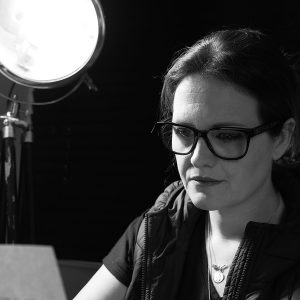Finance, markets, economics etc…
- The new corporate governance – a paper by Oliver Hart and Luigi Zingales that argues in favour of replacing shareholder value maximisation with shareholder welfare maximization.
- The yuan is depreciating quickly:

(Chart courtesy of the FT’s market pages.)The People’s Bank of China (PBOC) said on Monday that it will cut the reserve requirement ratio for foreign currency deposits by 1 percentage point to 8 per cent from May 15 onwards. I remember the days when consensus had it that the Chinese yuan was strategically under-valued. No longer. The real question that needs answering is how significant China’s dollar denominated liabilities are. Probably not as large as they might have been had China not strategically tried to discourage them over the years. Even so they’re likely to be significant, and it’s worth remembering many corps who issued dollar-denominated debt were already struggling to pay those coupons/maturities even in 2021.
- The US dollar has hit its strongest level in 2 years.
There’s a spate of commentary out there suggesting that the dollar’s recent strengthening indicates that its reserve currency status is not under threat. I very much disagree.
The strengthening is not good news at all. It indicates there is a dollar shortage in the international currency market which will soon impact the serviceability of offshore dollar-denominated debt because dollars will no longer be able to be recycled into other revenue streams. This is all the result of a reduction of commodity dollars in the system due to Russian sanctions. The situation is severe and could have the makings of a dollar-system shock akin to the one last seen in 2008.
This time, however, central bank swaps may not be enough to save the system because the problem is not a liquidity issue as much as a flow issue. The only way out for those parties who have lost access to dollar flows is to have their governments formally redenominate their debt into currencies that are still forthcoming. Alternatively, for governments to take over the FX risk. This could open the door to some very interesting international negotiations in the months to come.
- Nouriel Roubini on the gathering stagflationary storm.
Dr Doom’s take is the right one. Both on what he says about climate change and climate action being stagflationary forces in their own right:

And regarding what he says about sanctions policy:

A good way to think about what is going on here is this: Dollar super strength => mass eurodollar defaults => inter-state restructuring negotiations => mass “negotiated” redenomination/acquisition of a lot of dollar-denominated debt (most likely into CNY, RUB or crypto).
Once legacy US-dollar denominated debt is dealt with, US authorities will be tempted to engage in competitive devaluation to help encourage US exports and the reshoring of core industry from China and emerging markets to the West. This, at least, is how I see things evolving unless the Russia crisis resolves itself (Unlikely.)
- Jack Dorsey laments that Twitter as a company has always been his sole issue and biggest regret.
Is there anything left to be said about Elon’s Twitter takeover? I think not. At least not of any substance. Some of the more ridiculous takes even in the nuanced category include comments like “Twitter is one of our most important pieces of social infrastructure and the prospect of Elon preserving free speech here is exciting, but it also feels discomforting that Twitter should be privately owned and controlled by one man.” Note to Tweeter: It was already controlled by a dysfunctional private board backed by VCs and then a dysfunctional public board.
I also find it quite amusing that so many of those who like to insist that cancel culture doesn’t exist also think it’s the end of democracy because Elon might be inclined to re-platform people. It surely can’t be both?
Twitter this morning, in any case, felt a bit like this:
With one half of my stream expecting something like this:
Politics:
- Macron may have won the French election, but Le Pen finished far ahead of Emmanuel Macron in Guadeloupe, Martinique and Réunion.
- Apparently Putin had two mothers. There’s a new book by a veteran Polish reporter, Krystyna Kurczab-Redlich, who spent a lot of time in Chechnya called Wowa, Wolodia, Wladmir and it is currently going a little bit viral in Polish media.
I haven’t read the book, but Kurczab-Redlich has done a number of Polish-language media interviews and I’ve got the gist from those.
The book’s key claim is that Putin’s official lifestory is totally false, and that his real mother was a Russian girl called Vera Putin who had Putin in 1950 out of wedlock. She then fell in love and married a Georgian, settling in the village of Metekhi in Georgia. Putin — who had originally been left behind by his mother in Russia — was eventually dispatched to join her in Georgia. He didn’t stay in Georgia long. Once Putin’s Georgian stepfather became abusive, he was dispatched back to Russia and placed into the care of family relatives who also bore the Putin name. These adoptive carers have been misrepresented as his real parents ever since.
Kurczab-Redlich says there were great efforts to suppress the information about Putin’s Georgian mother, who she interviewed at length for the book.
Among her other claims is that it was while Putin was working for the KGB in Dresden that he found himself perfectly positioned (in the chaos of the communist collapse) to appropriate all the Stasi dossiers from the main KGB HQ. These dossiers, she suggests, included the names of all the agents and informants working for the KGB in Germany, including those at very senior levels of the German establishment. She believes this kompromat may have empowered him greatly.
But Kurczab-Redlich also claims Putin would soon be left destitute after being kicked out of the KGB. This would take him back to Leningrad to take up a position at the Leningrad State Univeristy as an adminstrator of international affairs. It was there that he would meet Anatoly Sobchak at university, and begin his ascent into political affairs.
WW3 Watch:
- John Pilger notes that Australia’s Defence Minister Peter Dutton has told Australians to “prepare for war” comparing China with Nazi Germany in the 1930s. Though Pilger links to this story that casts doubt on the idea.
- Why is the Ukrainian cause failing to resonate with non-Western countries?
This par is particularly pertinent: “In conversations with diplomats and analysts from across Africa, Asia, the Middle East and Latin America, it was evident to me that these countries largely sympathize with the plight of the Ukrainian people and view Russia as the aggressor. But Western demands that they make costly sacrifices by cutting off economic ties with Russia to uphold a “rules-based order” have begotten an allergic reaction. That order hasn’t been rules-based; instead, it has allowed the U.S. to violate international law with impunity. The West’s messaging on Ukraine has taken its tone-deafness to a whole new level, and it is unlikely to win over the support of countries that have often experienced the worse sides of the international order.”
From the “fake news” zone:
- John Helmer on the secrets of the bunker underneath the Azovstal steelworks in Mariupol.
- Former weapons inspector Scott Ritter, now banned from Twitter, asks why did the mainstream media ignore the disappearance of independent American reporter Gonzalo Lira? Ritter says he was picked up by the Ukrainian secret service, who “roughed him up”. Lira has reappeared and says he is safe, but is no longer broadcasting as a result of the experience.
Covid is still a thing:
- In New York children are still being forced to wear masks at school.
- The UK Transport Select Committee has concluded that UK travel rules were disproportionate.



